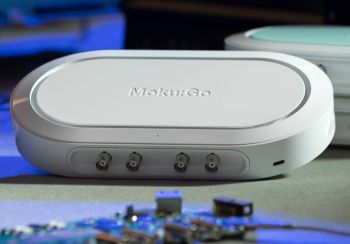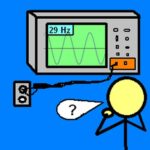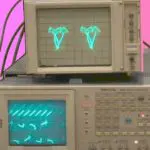An array of new features have been added to Moku:Go, Liquid Instruments’ complete engineering lab solution for engineers and students, and updates to features on Moku:Pro, the company’s integrated platform for the most demanding research and engineering applications.
The enhancements broaden the capabilities of Liquid Instruments’ flagship software-defined products, making high-performance features more accessible to students,  scientists and engineers while bridging the gap between educational and professional equipment.
scientists and engineers while bridging the gap between educational and professional equipment.
New features added to Moku:Go include:
Protocol Analyzer: Protocol analysis has been added to Moku:Go’s Logic Analyzer, rounding out the feature set and creating an instrument ideal for stimulating and characterizing digital systems. Now users working with protocols like I2C, SPI, and UART can stimulate, monitor, capture and debug digital data in embedded systems.
Multi-instrument Mode: Moku:Go users can now use two instruments simultaneously and cascade their signal paths without any external connections. Users can easily combine and reconfigure instruments to generate and analyze signals, perform measurements in both time and frequency domains, and pair with filter boxes to post- or pre-process signals all within a single device.
Moku Cloud Compile: This tool enables users to create and deploy custom HDL code directly from a browser to Moku:Go’s FPGA. The user’s custom logic can be connected directly to Moku:Go’s analog and digital I/O, or connected with other instruments in Multi-instrument Mode to stimulate or probe the design. This cloud-based workflow eliminates the need for large software installations and enables users to quickly and easily customize Moku:Go for their specific applications.
Liquid Instruments also announced updates to features on the flagship Moku:Pro, including:
Phasemeter update for highly dynamic control and phase-lock applications: The maximum tracking bandwidth has increased from 10 kHz to 1 MHz, so users can now perform unwrapped phase, frequency and amplitude measurements of highly dynamic tones. This can be used to solve the most challenging control and phase-lock problems like those found in directed energy and quantum computing.
Improvements to the Frequency Response Analyzer (FRA): The maximum number of sweep points has been increased to 8,192 for higher resolution bode analysis across a wider frequency range. Additionally, a secondary input channel can now be selected as a normalization source in the FRA, enabling real-time de-embedding and isolating just the response from the device under test.
“We are excited to announce these new features, which will open up valuable new use cases for our products,” said Prof. Daniel Shaddock, CEO of Liquid Instruments. “With these additions to Moku:Go, users can now unlock the full potential of this accessible device to greatly simplify the way FPGA programming is used and taught. We look forward to continuing to leverage our unique software-defined platform to quickly deploy new capabilities, further enhance our Moku products, and meet even more customer needs.”
Liquid Instruments, 740 Lomas Santa Fe Dr. UNIT 102, Solana Beach, CA 92075, (619) 332-6230, www.liquidinstruments.com/products/hardware-platforms/






Leave a Reply
You must be logged in to post a comment.